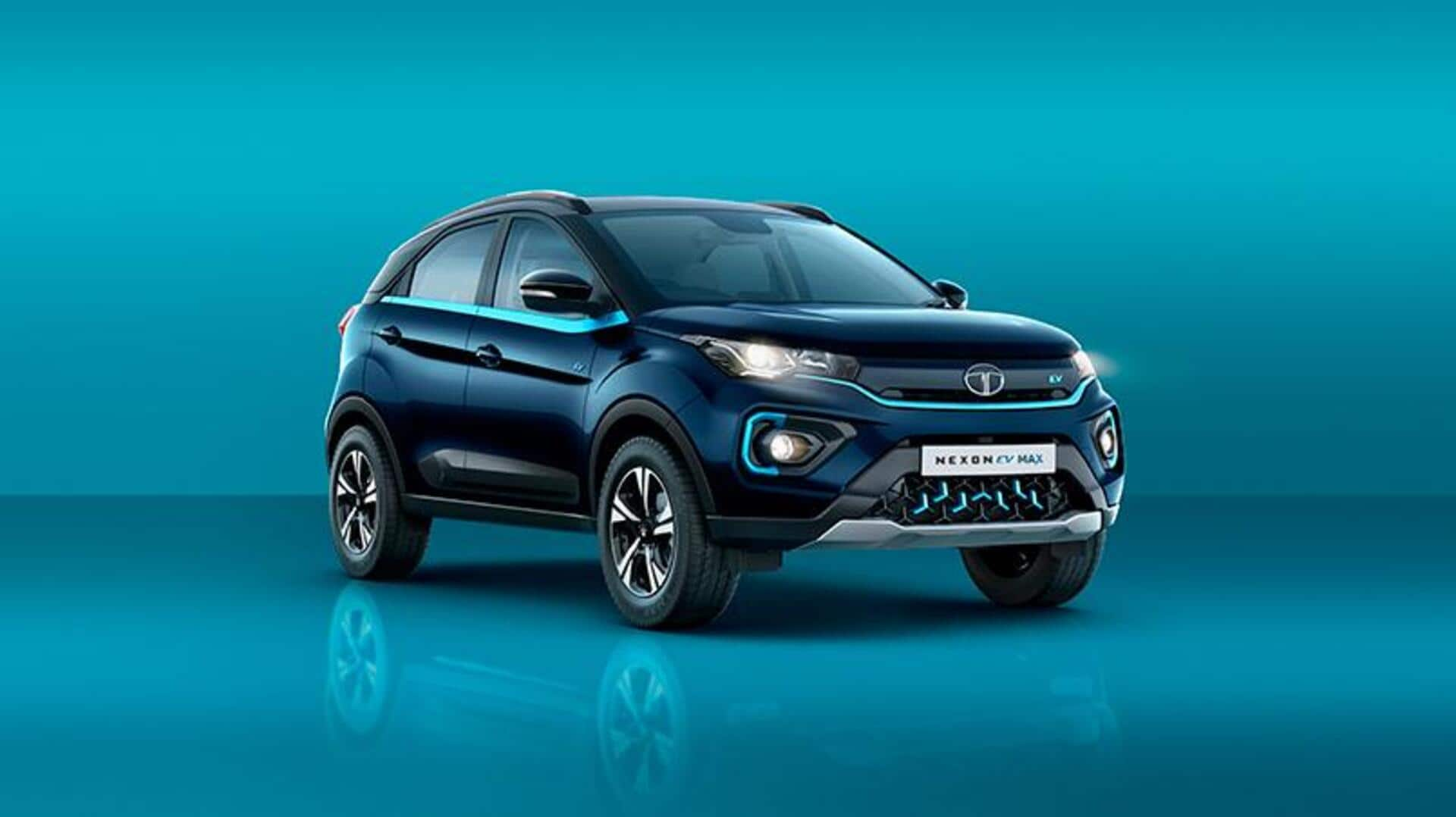
Electric car sales jump 114% to 81,000 units in CY2023
What's the story
In CY2023, electric passenger vehicle (PV) sales in India skyrocketed, reaching an all-time high of 81,870 units as the market surged by 114%. This impressive growth is attributed to a range of factors, including heightened product availability, strong consumer demand, and an expanding charging infrastructure. Tata Motors remains the market leader with a 73% share, followed by MG Motor India and Mahindra & Mahindra. Luxury carmakers also saw a staggering 355% YoY growth, selling 2,582 units in 2023.
Details
Consistent demand for electric PVs throughout the year
Electric PV sales consistently exceeded 7,000 units for eight months in a row since May 2023. This contributed to the sector's best-ever annual sales of 81,870 units. March 2023 saw the highest sales with 8,833 units. Other months like May (7,708 units), June (7,969 units), July (7,765 units), October (7,520 units), November (7,374 units), and December (7,124 units) also surpassed the 7,000-unit milestone.
#1
Tata Motors led the market in CY2023
Tata Motors maintained its dominance by selling an estimated 59,580 units in CY2023, up 86% YoY (CY2022: 31,972 units) to secure a 73% market. Tata's dominance, once exceeding 80%, has diminished due to the burgeoning and dynamic EV market. The increased competition has led to a broader array of product choices from a growing number of competitors. However, Tata still boasts the most extensive lineup, including Nexon EV, Tigor EV, Tiago EV, and the Xpres-T (designed for fleet buyers).
#2
MG Motor India trailed behind with 11.51% market share
MG Motor India came in second. The company sold a total of 9,430 units, including the ZS EV and Comet EV. It held a market share of 11.51%, significantly behind Tata's market share. However, MG's performance in CY2023 marks a remarkable improvement, registering a 175% increase over its CY2022 sales of 3,430 units.
#3
Mahindra & Mahindra held the third position
Mahindra & Mahindra took third place with 4,201 units, commanding a market share of 5.13% in the EV sector. The company boasts two offerings in the all-electric segment. The first one is the XUV400, which emerges as a direct competitor to the popular Tata Nexon EV. It has experienced sluggish sales since its introduction. Another offering from Mahindra is the eVerito sedan.
Information
BYD India ranked fourth with 2.43% market share
Chinese EV maker BYD held the fourth position in sales, recording a total of 1,997 units for its Atto 3 SUV and e6 MPV. This reflects BYD's remarkable 341% YoY increase (compared to 343 units in CY2022). It has a market share of 2.43%.
#5
Citroen India came in fifth with its standalone e-C3 model
Citroen recently entered the EV market in India. In 2023, the company sold 1,938 units of the Citroen e-C3, achieving a 2.36% market share. It closely trailed BYD India by just 59 units. To recall, the Citroen eC3 was released in February-end. So, these sales were accomplished within the span of 10 months since its launch.
More
Hyundai and Kia collectively witnessed 144% YoY growth
In 2023, the combined sales of Hyundai Motor India and Kia India, reached 2,033 units, marking a significant 144% year-over-year growth (compared to 834 units in CY2022). Hyundai, offering the KONA Electric and the IONIQ 5, achieved sales of 1,597 units. This is a 158% increase from the 619 units sold in CY2022. Meanwhile, Kia recorded sales of 436 units for the EV6 MPV, marking a 103% rise compared to the 215 units sold in CY2022.
Information
What about the performance of luxury carmakers?
Luxury carmakers experienced a massive 355% growth in India, selling 2,582 electric vehicles in CY2023. BMW India led the pack with 1,280 units sold, followed by Volvo (553 units), Mercedes-Benz (505 units), Audi (140 units), Porsche (95 units), and Jaguar Land Rover (9 units).